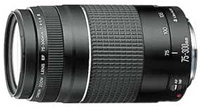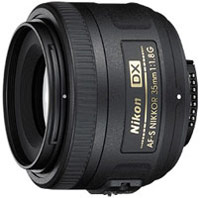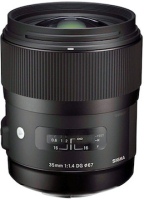Tamron 18-400mm f/3.5-6.3 VC Di II HLD
 |
Tamron 18-400mm f/3.5-6.3 VC Di II HLD | |||||||||||||||||||||||||||||||||||||
| |||||||||||||||||||||||||||||||||||||
A versatile cannon for Canon and Nikon cropped DSLRs that covers an impressive range of equivalent focal lengths of 29-640mm and 27-600mm, respectively (the difference in numbers is due to differences in the crop factor of cameras). At a wide angle, architectural structures can easily fit into the frame, and at the telephoto zoom position, distant objects and shy little animals.
The optical scheme of the lens is built on the basis of 16 elements combined in 11 groups, and the Tamron 18-400mm F3.5-6.3 Di II VC HLD diaphragm consists of 7 blades. The telephoto version for Nikon DSLRs is available with an electromagnetic diaphragm. Also inside the 710-gram "carcass" of the model there was a place for an optical image stabilizer, the level of effectiveness of which is estimated to be able to compensate for up to 2.5 stops of exposure when shooting handheld or in low light conditions. The HLD (High/Low Torque Modulated Drive) motor is responsible for quiet and precise focus. It is worth considering that in the process of zooming and focus, a rather sickly “trunk” leaves the body of the model, however, due to the implemented dust and water protection, the lens should not draw dust into the structure.
Always clarify the specifications and configuration of the product with the online store manager before purchasing.
Catalog Tamron 2025 - new arrivals, bestsellers, and the most relevant models Tamron.


Buy Tamron 18-400mm f/3.5-6.3 VC Di II HLD
All prices 10 →Tamron - 18-400mm F/3.5-6.3 Di II VC HLD All-In-One Telephoto Lens for Nikon APS-C DSLR Cameras - black AFB028N700 | $699.99 |  | |||
Tamron 18-400mm f/3.5-6.3 Di II VC HLD All-In-One Zoom Lens for Nikon Mount AFB028N-700 | $699.00 | ||||
Tamron 18-400mm f/3.5-6.3 Di II VC HLD Lens for Canon EF AFB028C-700 | $523.00 | ||||
Tamron 18-400mm f/3.5-6.3 Di II VC HLD Zoom Lens for Nikon Mount+7 Year Warranty E97TM18400NA | $699.00 | ||||
Tamron 18-400mm f/3.5-6.3 Di II VC HLD Zoom Lens for Nikon Mount Accessories Bundle E3TM18400NA | $749.00 | ||||
Not every ultrazoom has such a range of focal lengths in the stock as the Tamron 18-400mm f / 3.5-6.3 Di II VC HLD. No joke, in the equivalent of a 35mm film frame, the values of focal lenses from the all-in-one category are scattered over the widest range from 27 to 600 mm. And this, for a moment, is a record zoom ratio among representatives of the genus of interchangeable lenses for SLR cameras.
All in one
Once you set the zoom on the camera, you can forget about the constant change of optics, because the lens takes pictures both with a wide angle of view and with an impressive zoom. Tamron's "glass" is applicable in any genre of photography, whether it's landscapes, portraits, reporting or wildlife photography. The only thing that slightly limits the capabilities of the model is the low aperture: f/3.5 at the wide-angle end and f/6.3 at the maximum zoom position. An optical stub immediately comes to the rescue in obtaining blur-free images, the effectiveness of which is estimated by compensation up to 2.5 stops of exposure.
Internal hardware
The optical scheme of the lens has 16 elements, united under the wing of 11 groups. Also inside the plastic case of the brainchild of Tamron, there was a place for the electromagnetic diaphragm mechanism (in the version for Nikon DSLRs) and the nimble drive of the automatic focus system. The lens catches the shooting object quickly and does not lose sight even when it is actively moving across the frame field. The "insides" of the telephoto are protected from dust and moisture by rubber seals.
Out of competition
When zoomed in, the Tamron 18-400mm f/3.5-6.3 Di II VC HLD almost doubles in length. But at the same time, the lens still remains more compact than most telephoto lenses with a similar set of focal lengths at the long end. Despite the modest aperture, at an approximation of more than 100 mm, the model effectively blurs the background behind the subject. But at wide-angle focal lengths, there is a slight lack of frame detail and the phenomenon of vignetting. All flaws are excusable for the lens, if only for the reasons that there are simply no equals to it in universality.







































